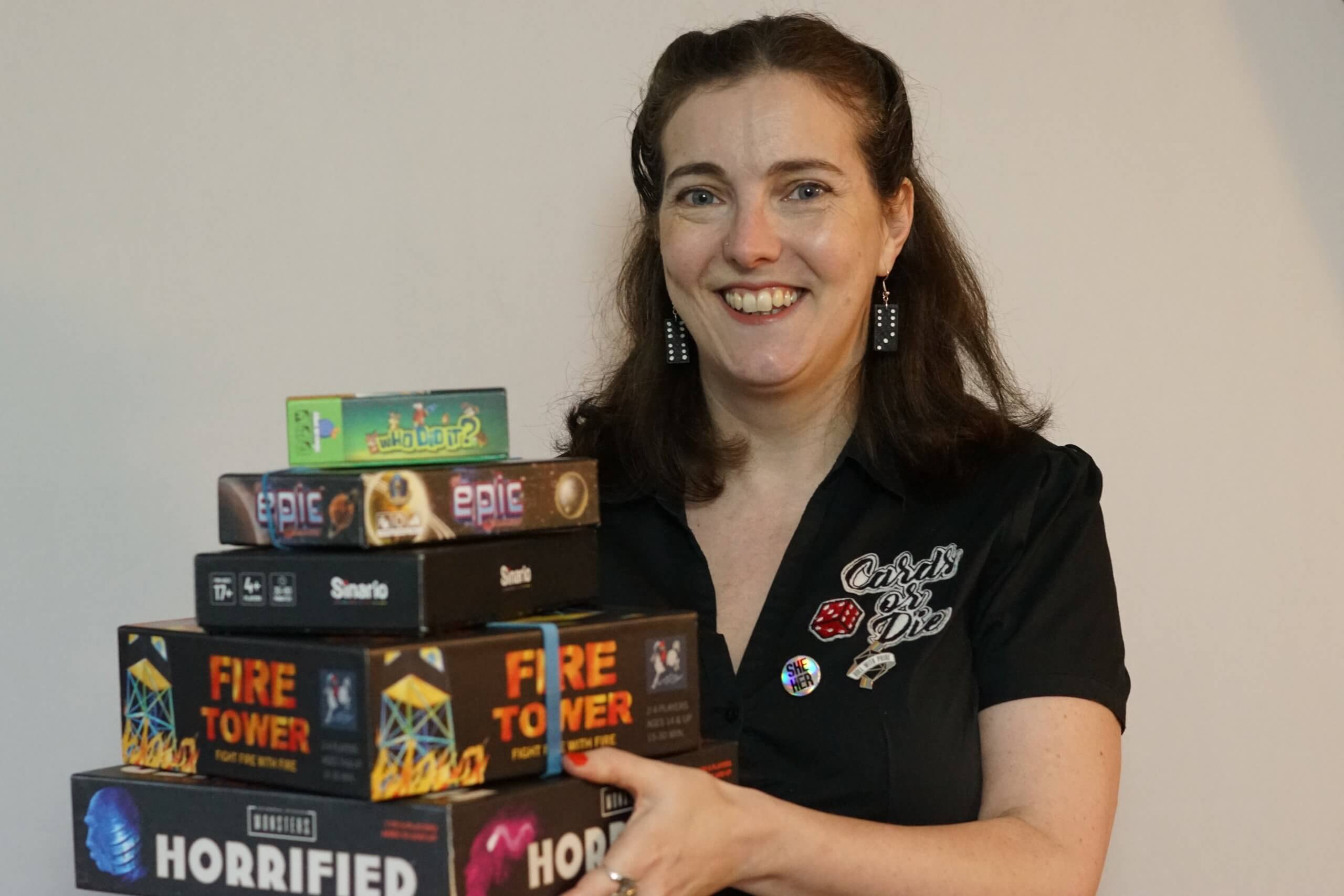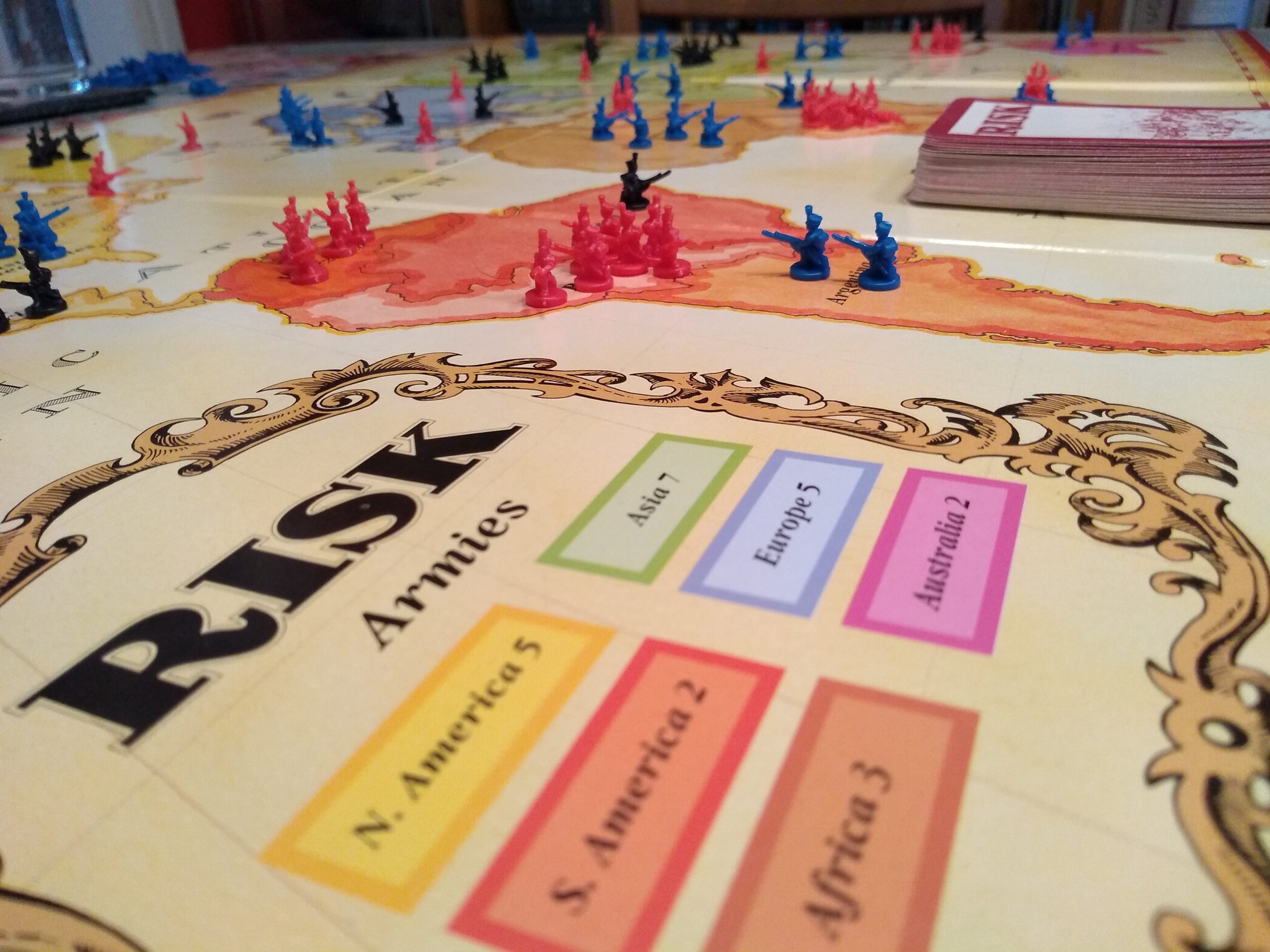
I finally got round to playing Risk for the first time last weekend. When I tell people what I do for a living, there’s a list of games that always come up and Risk is one of them. People have fond memories of playing Risk for hours and I think perversely that has always put me off.
Often the games that trigger fond reminiscences just don’t stand up to scrutiny.
‘Have you got Sorry?’
‘Yes’, I say, handing them a vintage copy.
‘Wow, I remember this. This is the exact one we had.’ they reply, handling the box in awe. Then they carefully put it back and play something else.
‘Have you got Mousetrap?’
‘Nope’
‘I loved that when I was a kid. You should get it.’
‘Did you? Or, did you love the idea of it but in reality it took loads of turns to build only to discover you’d forgotten to put the spring in the helping hand. Or the diver veered slightly to the left of the bath tub?’
And then they remember. Blind nostalgia falls away and they remember how bloody irritating it was.
When they ask for Risk I say I have it. In fact I have two copies – a retro version and a modern ‘speed play’ version. Yet few people actually play it, because – they say – because of the time it takes. This has just made me sceptical. Is it the serious gamer’s Mousetrap? Will I be Sorry?
The length of time a game takes has also become a factor. If I’m donating hours of my time, it had better be good. My favourite games are usually shorter. I’d rather play 2 or 3 games than devote an entire evening or day to one game. There are exceptions of course – The Harry Potter Battle Game, Arkham Horror, Forbidden Desert…Not that Forbidden Desert is itself a long game – it’s just that if you won’t stop until you’ve won, you need to set aside a decent amount of time. Pausing between games only to say ‘right’ in a suitably determined tone of voice.
So if you’ve never played Risk or you haven’t played for years and years, there are two questions we need to consider:
Is it really that great?
Why is it so loved?
These are my musings after my first game, a discussion with an enthusiast and some ideas from a twitter conversation.
What’s it all about?
To win the game you must either take over the world. (Bonus points to me for not inserting the Pinky and the Brain gif – again). Or, you can fulfil a special mission for instance kill all the yellow troops, occupy 24 territories or conquer certain continents. The mission cards are optional – they limit the game, making it shorter and more achievable.
Plays 2-6
Age 10+
Time – the rest of your life. Not really – we played for three hours but now that I get it I imagine it would stretch out more. Strategising rather than invading other countries with no plan always takes longer and is a surer way to win!
Official Hasbro timing 1- 8 hours
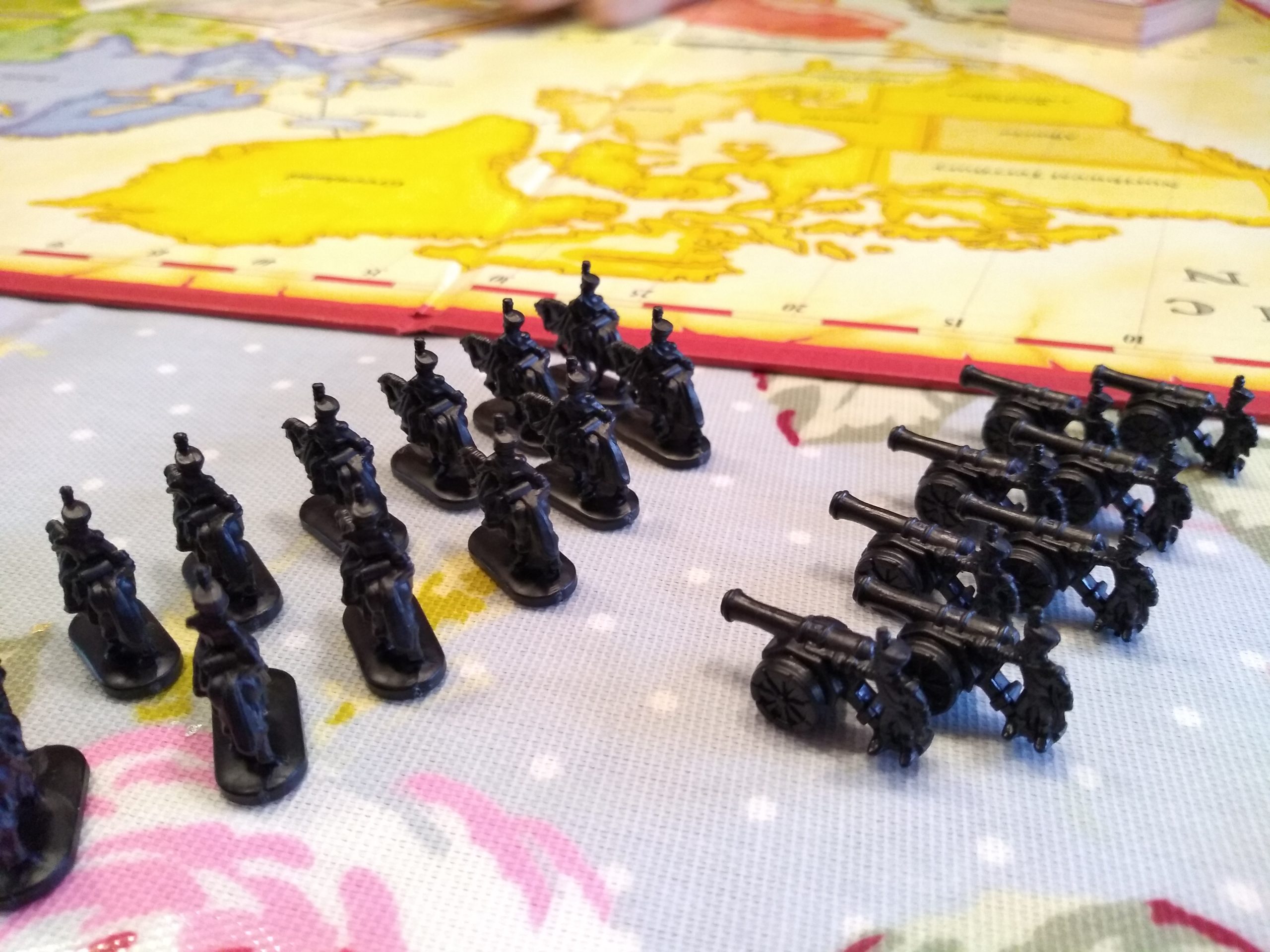
What you said.
A few people agreed it relied too much on luck while others felt that there was balance between strategy and luck. Broadly, people agreed that they enjoyed it when they were younger or first introduced to more complex games. It can teach strategic game play, the importance of the placement of resources or people and many other games were certainly influenced by it which positions it as a good introductory game for war games or games in general.
Its status as a classic seems unanimously agreed – but then does that mean you should play it or like many ‘classics’ just that it retains a special place in your affections and memories never to emerge from its box again?
The balance of strategy and luck.
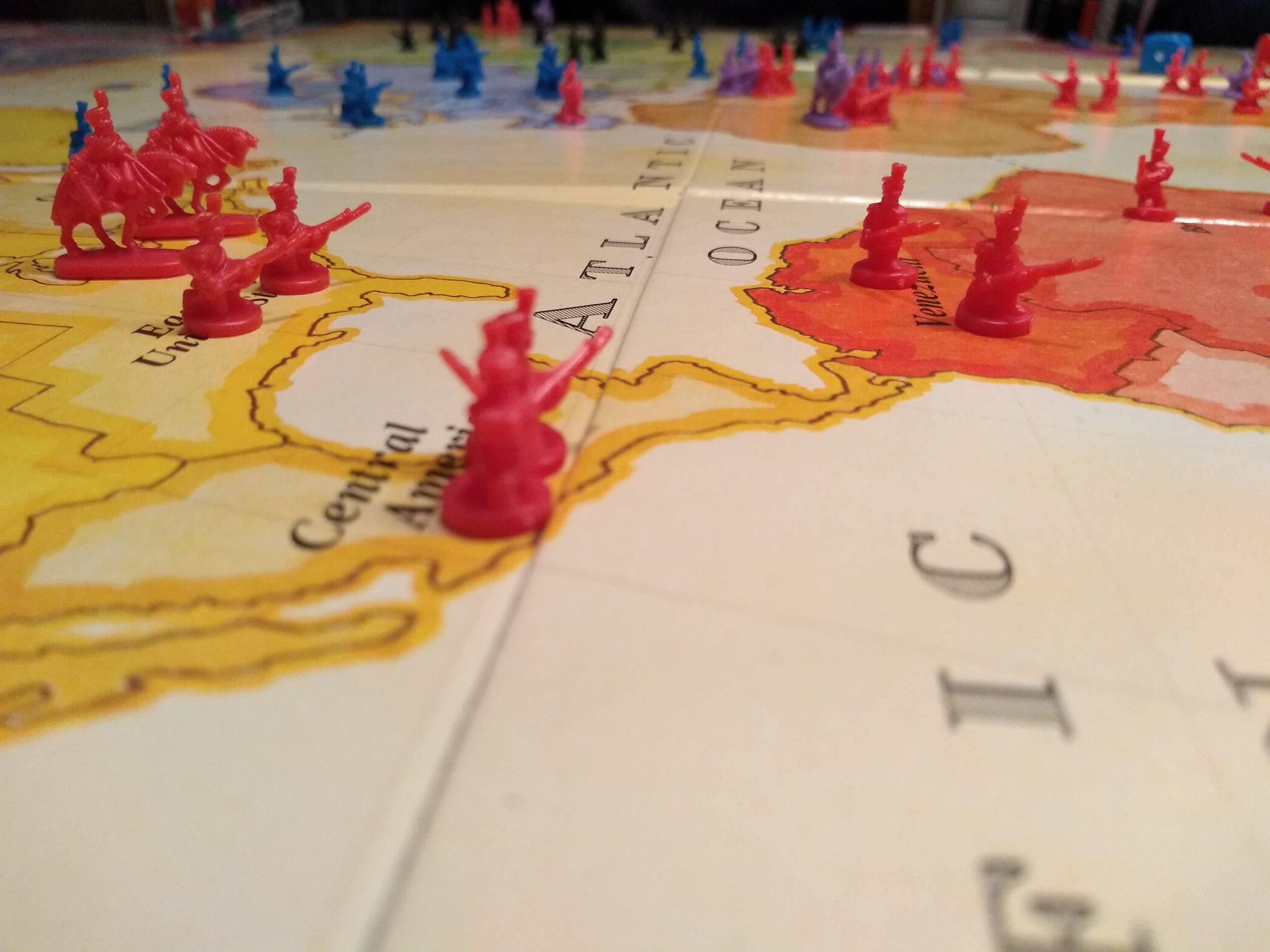
The strategy begins right from the off – the placement of your troops should be informed by a longer term plan. Grouping your weeny soldiers together strengthens their claim to a territory. Straightaway you are balancing up the taking of smaller (low value) continents which are potentially easier to take and maintain with higher risk targets that are worth more. Countries with more borders are worth more but are also easier to attack and harder to retain control of.
While I enjoy strategy games, I often prefer a game which has an element of luck to it. I feel like it removes too much predictability – which is important to me (especially when the predictable factor is me getting beaten again!!). I am a big fan of push your luck games, I enjoy the risk and the thrill. It is wholly appropriate that Risk has some push your luck elements. ‘Sod it, I might be totally outnumbered but I reckon I can roll higher dice than you. Yes I’m sure I’ll attack’.
The dice throws add a welcome luck based element to Risk – they decide the winners and losers of battles over territory. The dice are stacked in the defenders favour. So even here there are decisions to make – the number of troops you attack with governs how many dice you can roll and you must weigh that against the fact the odds are not in your favour. You can redress this imbalance by building up troops here but that relies on the person you intend to attack being busy elsewhere and not attacking you!
As the game progresses you are rewarded for your victories with increased reinforcements. Everyone gets reinforcements but this increases with the number of territories you control. This means that for novice players it can be frustrating as you watch others consolidate their powers while you just slip further and further back. It doesn’t mean that the game is over by any means it just makes it harder once you get behind. I felt I was almost waiting for someone to miss something or make a mistake. As I said I’m not a massive fan of super long games and I could see myself becoming disheartened with this set up. A more determined person, perhaps more of a long term strategist would, I’m sure rise to the challenge here and enjoy it.
I can also see that with more players and more experience of the game there is also room to make alliances and pacts to prevent one player becoming too powerful. But these alliances are temporary and will end in betrayal which gives the game an edge that many (but not me) would enjoy.
What have we learnt?
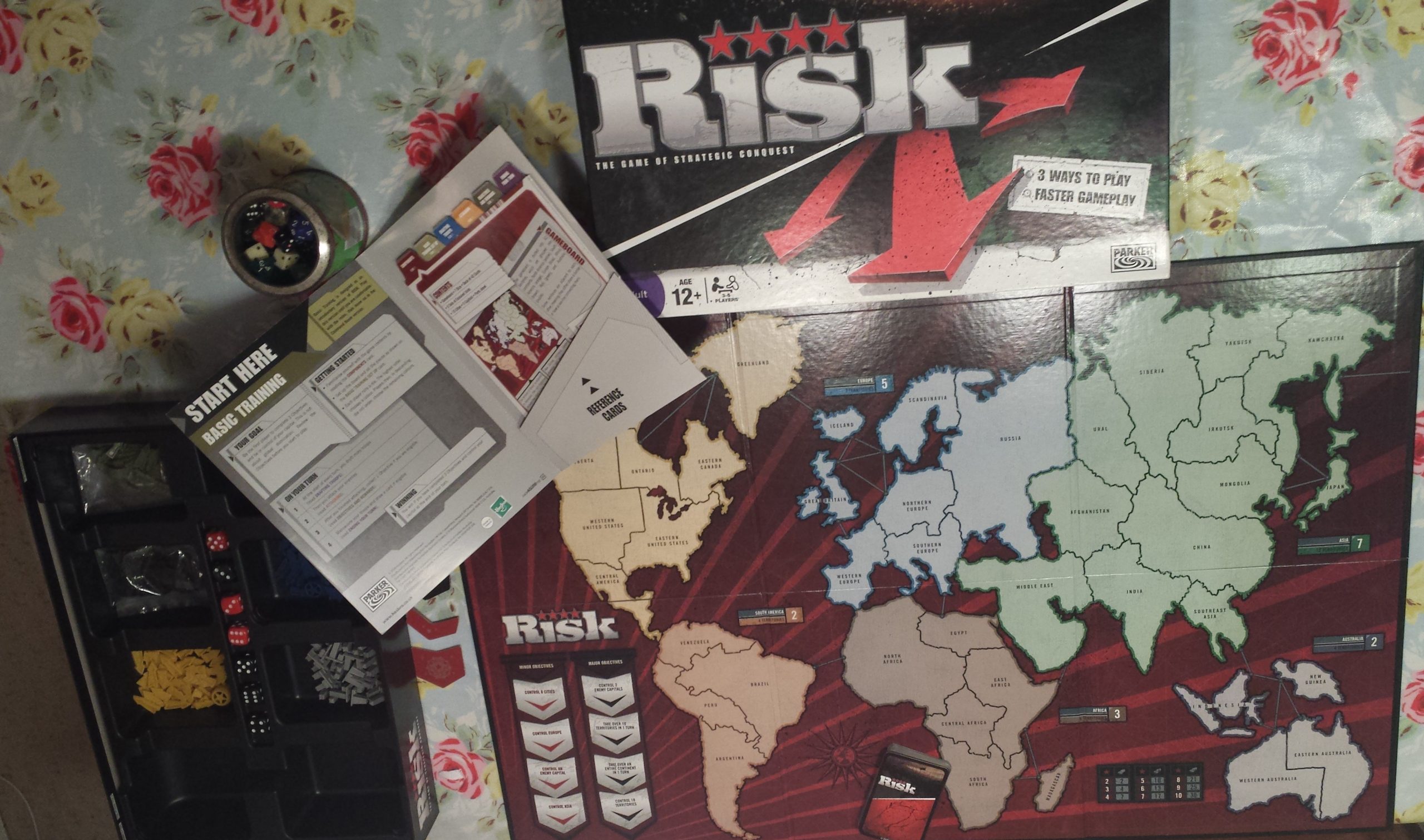
We have learnt that you can’t just invade countries with no strategy – you will lose. You also can’t invade a country and then just abandon your territory – you must leave at least one ‘troop’ behind to defend the country. The better you do, the better you will do – your gains accumulate.
While I may not play Risk again for a while, I’m glad I’ve played it. If you enjoyed it years ago or if you’ve never played it I would definitely recommend having a game. It’s enjoyable, it gets your brain working and above all it teaches you vital skills for if you ever fancy taking over the world.
Cards or Die will be at The Royal Armouries with War Games and war time games including Risk from February 16th until February 24th.
